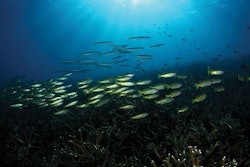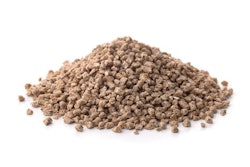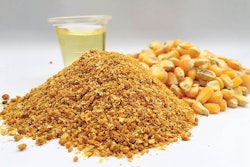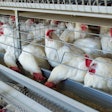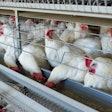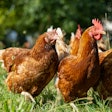
BASF has updated the status of its rebuilding process after a fire, which occurred October 31, 2017, at BASF’s citral plant in Ludwigshafen, Germany. Consequently, the company had to shut down the plant for its citral- and isoprenol-based aroma ingredients.
At that time, BASF’s vitamins A and E plants also shut down. Since the fire, the company has had employees working around the clock to efficiently clean and rebuild the damaged plant.
In a report released on January 31, explaining the status of the rebuilding process, BASF stated the cleaning of all platforms is completed, the entire fire area is accessible, draining and flushing of all vessels and pipes in the fire area is finished, major high voltage cables are installed, all damaged pumps were removed and sent for repair and, most recently, steel construction on 6-meter platform has been completed.
The company's website explains that the startup of the citral plant is still not expected before March at the earliest; procedure is expected to take several weeks. After commencement of citral production, downstream products may take weeks to produce.
“The availability of downstream products from BASF’s aroma ingredients business will vary by product. For about 80 percent of the portfolio, manufacturing of initial volumes will start within the first four to eight weeks after startup of the citral plant,” the company page stated.
Vitamin A and E plants in Ludwigshafen
Vitamin A and E plants will only be able to restart once supply of citral is re-established and the corresponding intermediates for vitamins A and E become available; these are expected to be ready for shipment six to 12 weeks after the citral plant resumes operation.
Once vitamins are manufactured, products will be shipped to various regions. However, the lead time is region- and country-specific, taking from few days/weeks (i.e. Europe) to several weeks/months (i.e. Asia, Latin America, North America), the website said.
Aroma ingredients complex in Kuantan, Malaysia
“During the last couple of weeks at our new aroma ingredients complex in Kuantan, Malaysia, the isoprenol, prenol, prenal and citral facilities have started up successfully. Currently, we are in the process of ramping up production of citral to a stable commercial scale,” the website said. However, the company is still working out operational kinks to produce citral in this location.
The company's plan with the limited citral volumes from Kuantan is to support the affected businesses during the forced shutdown in Ludwigshafen.
Why the shortage matters
According to Arnaud Bouxin, deputy secretary general for the European Feed Manufacturers' Federation (FEFAC): “The shortage in vitamins A and E supplies is critical, also due to a closure of a vitamin supplier in China because of environmental regulation."
Paul Davis, director of quality, animal food safety and education for the American Feed Industry Association (AFIA) explained that “vitamin A is a fat-soluble vitamin, also identified as an antioxidant, that is essential for growth, health and life. More specifically, it promotes healthy eyesight/vision, reproduction, bone growth and epithelial integrity.” He further explained that animals have requirements for vitamin A and, although there are several sources of vitamin A, there is no substitute for it.
“Vitamin E has a broad physiological importance, such as maintaining tissue’s structural integrity, supporting neural growth, reproduction and modulating immunity,” Bouxin said.
FEFAC previously informed its livestock farmer association counterpart that feed manufacturers globally expect to see an impact on the vitamin A and E inclusion rates in feed.
“Given that there are no direct alternatives, especially for vitamin A, and stocks are not sufficient to offset the deficit of production, the European Compound Feed Industry assures its customers that the sector is committed to not have the deficit in vitamins A and E supplies negatively affect animal health, welfare and performance, particularly for young and gestating animals,” Bouxin said.

